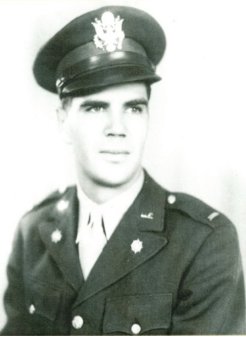
Letters often provide an intimate window into a person’s thoughts, personalities and quirks — especially if they were not sent to you in the first place.
That window opened for Lille Foster of Holt when she finally decided to read her father’s World War II era letters. Foster’s father, Theodore Pattengill Foster, had sent hundreds of letters home — mostly to his mother and father — detailing his activities at numerous postings across the United States.
In the letters, he tells his family and friends about military life, social events and the tedium of training while the war rages on across the ocean.
Pattengill Foster, after being drafted at 28 years old in 1941, spent much of the war stateside. Foster’s role saw him training and preparing soldiers in the areas of quartermaster duties and transportation and logistics.
In 1943, Foster, before being shipped overseas to Australia and New Guinea, married an Army nurse, Joyce Rosalind Capper.
Following the war, Foster returned to his hometown of Lansing to work for the Liquor Control Commission. He was then called upon in 1948 for another war percolating in Korea.
He spent the next 16 years in the military hopscotching to bases across the world. Along the way, he would ultimately be promoted to the rank of major. Lille, along with her two sisters, were Army brats until his retirement in 1963.
Circuitously, the letters would end up in possession of local archivists and historians, Geneva and George Wiskeman. The pair put the letters away until the time was right to pass them onto family members.
Foster said she and her father were never close and she took little interest in reading the letters.
It wasn’t until she read the book of a good friend of hers, Mary Jane Wilson, which detailed her own father’s experience in World War I, did Foster become interested in her father’s letters. Wilson’s book, “In His Own Words: the Freeman McClintock Story,” details her father’s work as an automobile mechanic during WW I.
Reading her father’s letters for the first time, Lille’s opinions about him changed.
The letters revealed to Foster that he was perfectly suited for Army life and that he flourished there.
“Army was his life and he reveled in it,” she said.
His letters clearly represented his drive and ambition. “He was always the first to chosen for something,” she said.
Lille is a librarian, but she has always been interested in history and genealogy. This interest can be traced to her great-grandfather, Henry R. Pattengill, who was Michigan’s first superintendent of public education and publisher of textbooks and educational material. In 2014, Foster helped spearhead an effort to erect a state history marker in Ithaca to recognize her great grandfather.
Now, she has published a compilation of her father’s letters in a new book, “U.S. Army Life 1941-1945: In the Letters of Theodore Pattengill Foster.”
The book offers more than 200 letters and postcards which contain Pattengill-Foster’s observations of Army life.
The letters are well written and are both funny and serious as the soldier goes about his training and ultimately becoming an expert in training other soldiers.
“I was surprised by his descriptive passages,” she said.
The first thing she discovered about her father was that he couldn’t spell.
“My father never learned the spelling rule, ‘i before e except after c,’ and wrote ‘receive’ hundreds of times in his letters.”
In addition to indicating the correct spelling, Foster also used more than 280 footnotes to provide more context for readers. So if there is a popular culture reference pertaining to the ‘40s, it is detailed in a footnote. For example, when Pattengill Foster mentions the movie “Star Spangled Rhythm,” she details the 1942 morale boosting movie.
One particular inside ball-game reference that readers wouldn’t have understood was Pattengill-Foster’s writing about a Zippity Zooker. Zookers were resorters who summered at Roaring Brook, an exclusive resort at Little Traverse Bay on Lake Michigan founded in the late 1800s by Lansing residents.
The resorters would cry “Zippity Zook Zippity Zook! We’re the gang from Roaring Brook.” Foster would later marry a fellow Zooker, Win Stebbins. The Stebbins cottage was next to Foster cottage at the resort.
Early in the book, a letter home details how Pattengill Foster found himself in the “doghouse” after writing the secretary of war complaining that there was no flag to fly on the base.
Like every GI, his letters are peppered with references to food, both good and bad, KP and getting passes for leave.
In one letter to his sister Tina, he writes “Today is probably the most famous day of all to soldiers — pay day.”
Other letters reference how the $21 a month pay doesn’t go very far when you factor in having to buy your own uniforms.
At Christmastime 1941, he ends a letter to his parents with the line, “There’s something about Northern Michigan that just can’t be found anywhere else.”
Foster said that after compiling the letters she let Mary Jane Wilson read them.
Her response: “I feel like I know him.” “That’s exactly what I hope to accomplish by publishing his letters,” Foster said.
“To me, it’s very important people are not forgotten,” she said.
An older version of this article incorrectly stated Mary Jane Wilson wrote a book about her husband, it's been changed to reflect that the book was about her father.
Support City Pulse - Donate Today!
Comments
No comments on this item Please log in to comment by clicking here